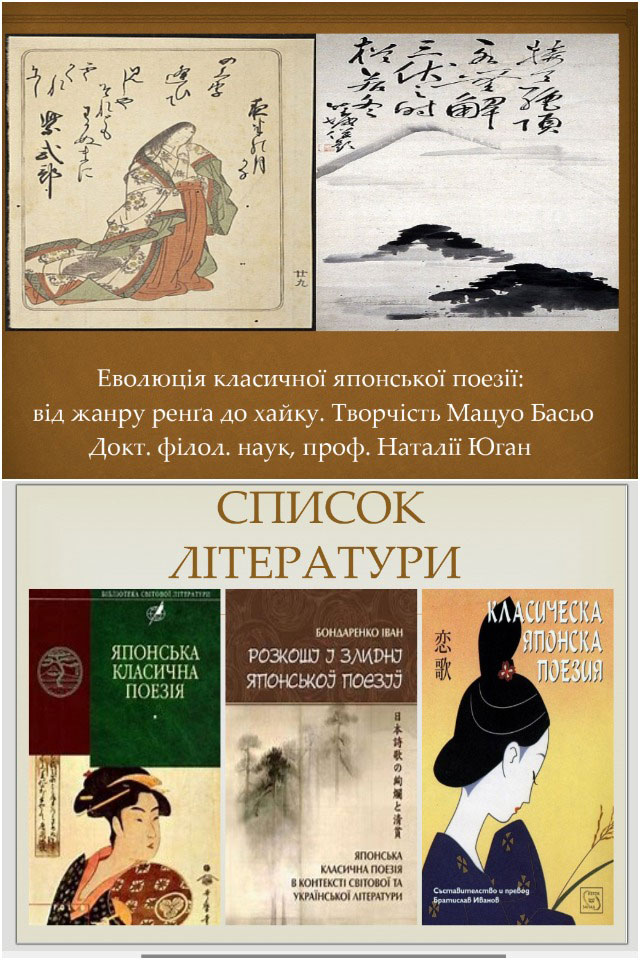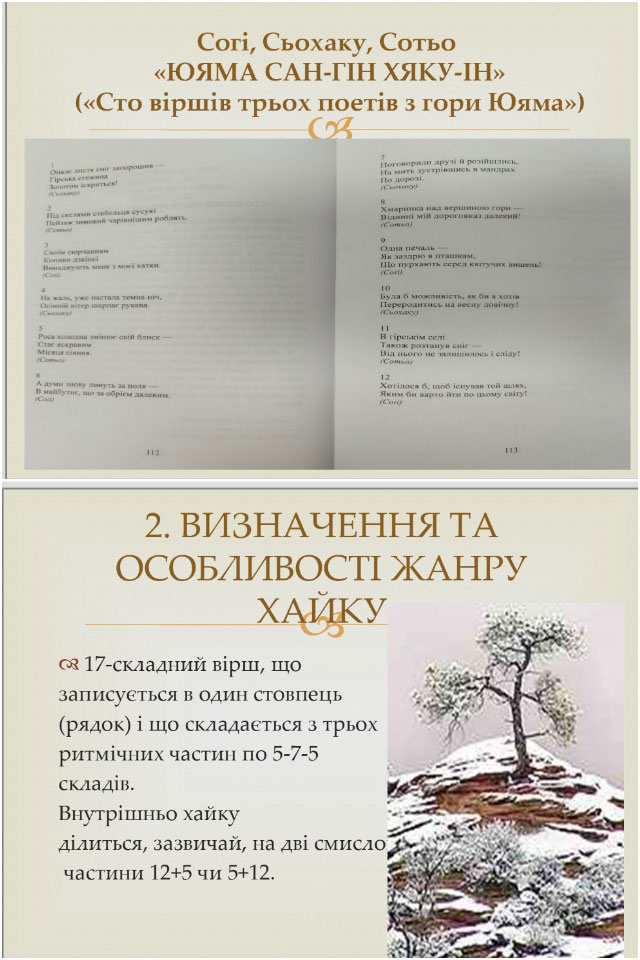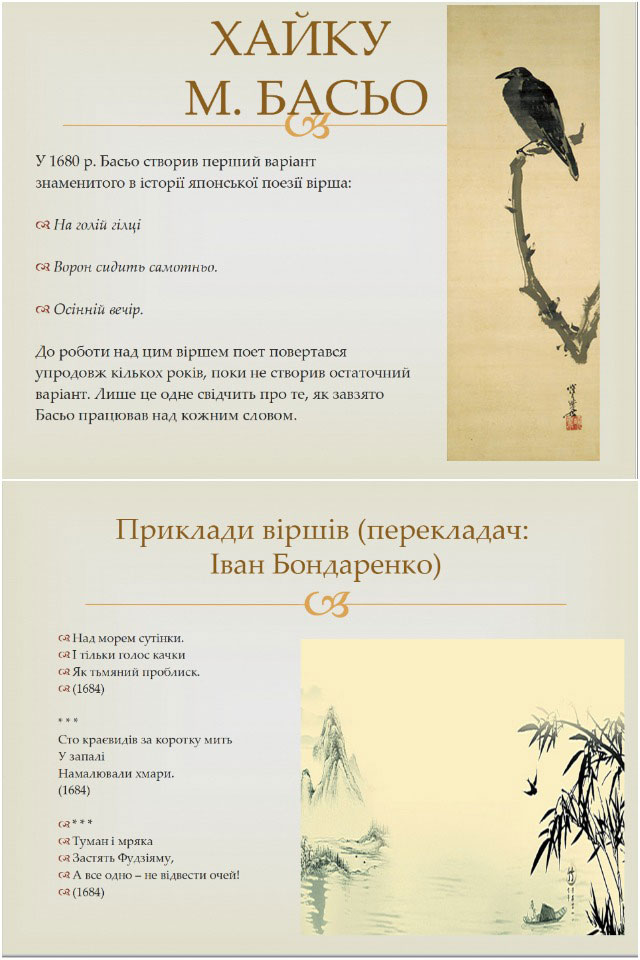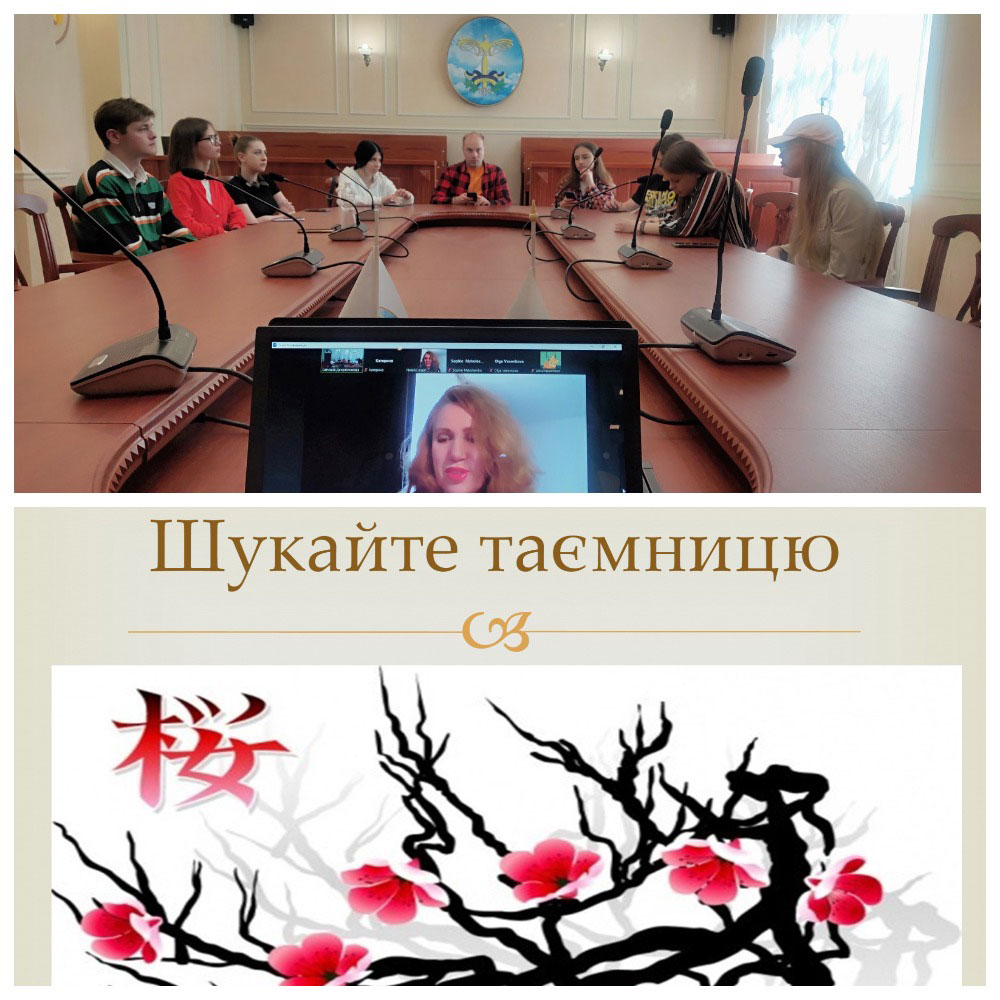The open lecture “Evolution of classical Japanese poetry: from the genre of renga to haiku. The work of Matsuo Basho” by the Professor of the Department of Oriental Philology and Translation of Luhansk Taras Shevchenko National University (Poltava, Ukraine), intern at the Institute of German Studies of Heinrich Heine University Düsseldorf, Doctor of Sciences in Philology, Associate Professor Nataliia Yuhan was held in the conference hall (room 1-0130) of Kyiv National University of Technologies and Design on 01 May, 2024 at 10:00 AM.The lecturers and students of the Department of Philology and Translation of the Institute of Law and Modern Technologies, future translators and teachers of the Ukrainian and English languages joined the meeting in the auditorium and remotely. The Head of the Department of Philology and Translation, PhD in Philology, Associate Professor Yelyzaveta Isakova and the Associate Professor of the Department of Philology and Translation, PhD in Philology, Associate Professor Svitlana Dvorianchykova, invited a lecturer and moderated the event.


Nataliia Yuhan characterized the peculiarities of poetics of the renga genre, introduced the audience to the genre features of haiku. The lecturer focused on the analysis of the haiku genre in the works of Matsuo Basho and the determination of the place of classical lyrical genres of Japanese poetry and their translation in the modern world.
Basho is the literary pseudonym of the famous poet of the 17th century - Matsuo Munefusa, who took an honorable place in the history of Japanese literature. The poet is revered as an original artist and the founder of a special school of haiku poetry. The most characteristic features of the 3-line, 17-syllable haiku are its hidden meaning, accessibility, simplicity, and the beauty inherent in a monochrome ink drawing. The poet created a new national poetry, endowing it with the depth of thoughts about nature, long journeys and human feelings. Nowadays, Matsuo Basho’s poems have been translated into many languages. Among the well-known Ukrainian translations of Matsuo Basho’s work are the works of Mykola Lukash, Ivan Bondarenko, and Hennadii Turkov, which were offered to listeners for analysis and comparison by Nataliia Yuhan.

The task proposed by the lecturer to compose their haikus and recite them was also very interesting for the audience.
At the end of the meeting, the lecturer invited the winners and colleagues to think about the meaning of haiku for European culture in general and Ukrainian literature in particular.

Nataliia Yuhan’s informative, elegant and emotionally rich lecture familiarized the listeners with the national features of revealing the eternal themes of the greatness of nature, compassion for all living things, as well as the deep unity of man and the universe.

08.05.2024